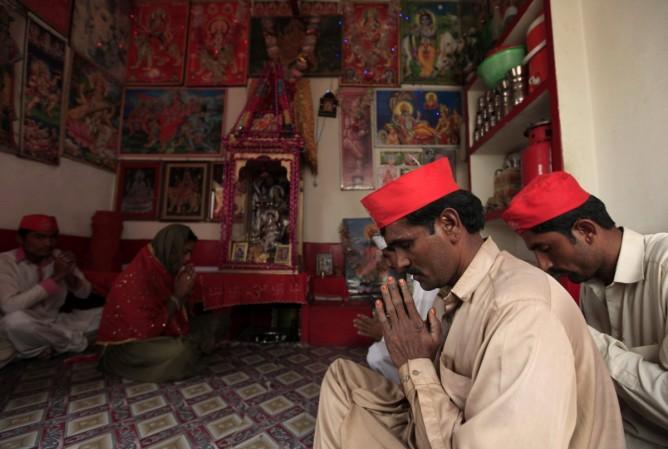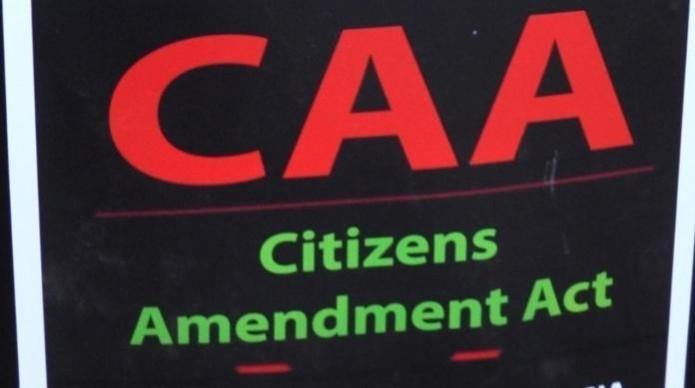The Citizenship Amendment Act (CAA) passed by the Indian Parliament in December 2019 has ignited debates and controversies both within India and internationally. The CAA aims to grant expedited citizenship to religious minorities from neighbouring countries, including Afghanistan, Bangladesh, and Pakistan, who faced persecution and discrimination based on their faith. Hindus, Sikhs, Buddhists, Jains, Parsis (Zoroastrians), and Christians are among the religious communities eligible for this special provision.
India has a rich history of embracing religious diversity and safeguarding the rights of minorities. The founding fathers of the Indian constitution envisioned a secular nation that ensures equality and freedom of religion for all its citizens. This vision reflects the essence of India's civilizational values, where the coexistence of diverse religious beliefs has been a hallmark for centuries.
The Partition of India in 1947 led to a mass migration of people across the newly drawn borders, resulting in communal violence and the uprooting of millions. It was during this tumultuous period that the plight of religious minorities became evident. Hindu and Sikh communities faced persecution and forced migration in Pakistan, while Muslims experienced similar challenges in India. The memories of this tragic chapter in history have left a lasting impact on the collective conscience of India.
The Citizenship Amendment Act (CAA) is a humanitarian response to the ongoing persecution faced by religious minorities, particularly Hindus, in Pakistan. Reports from human rights organizations have highlighted the systemic inequality, discrimination, and violence endured by Hindus and other religious communities in Pakistan. Forced conversions of Hindu girls and women through kidnapping and coerced marriages are rampant, making religious minorities feel unsafe and insecure in the country.

The rise of the Taliban insurgency in Pakistan has further exacerbated the plight of non-Muslims, including Hindus. The destruction of Hindu temples, false blasphemy accusations, and attacks on temples and shops have become common occurrences. Abductions, forced conversions, and forced marriages of young Hindu women pose significant challenges to the Hindu community's survival.
For the Indian government, providing asylum and fast-track citizenship to persecuted minorities is seen as a civilizational duty rooted in India's historical legacy and values. India's civilizational ethos have always emphasized inclusivity and the protection of religious freedom, making it a natural response to extend a helping hand to those fleeing persecution.
The Indian government believes that the CAA upholds the principles of compassion and humanity, reflecting the core values of the Indian civilization. By offering refuge to religious minorities facing persecution, India seeks to reaffirm its commitment to safeguarding the rights and safety of those who are vulnerable and oppressed.
Beyond its civilizational duty, India's decision to enact the CAA is also grounded in its commitment to human rights. As a signatory to various international conventions and agreements, India is bound to uphold and protect human rights, including the right to freedom of religion and belief. By granting fast-track citizenship to persecuted minorities, India aligns its actions with the principles of human rights and humanitarianism.
The CAA has faced both domestic and international reactions. In response to misinformation surrounding the Citizenship Amendment Act (CAA), the Indian government has undertaken various measures to clarify the law's purpose and dispel any misconceptions. One such step is the publication of advertisements in leading Hindi newspapers, providing accurate information and countering false narratives about the CAA. These advertisements aim to ensure that the public is well-informed about the law's objectives and its implications.
Additionally, the ruling party in India, the Bhartiya Janata Party (BJP), has launched a door-to-door campaign to raise awareness about the CAA. Party leaders and workers visit households to provide accurate information and address any misunderstandings or misinformation regarding the law. This grassroots approach is intended to engage directly with the public and ensure that citizens have access to accurate information.

Furthermore, government officials, including Prime Minister Narendra Modi, have made public statements defending the CAA and refuting allegations of discrimination against Muslims. They have emphasized that the CAA's primary intent is to offer sanctuary to religious minorities facing persecution in neighbouring countries and is not aimed at targeting any specific religious community. Through these public statements, the government seeks to foster a clear understanding of the law's humanitarian purpose.
The Indian government has also engaged with the international community to address concerns and provide accurate information about the CAA. In response to reports and statements from international organizations, the government has clarified the intent and impact of the law. This international engagement aims to present a transparent view of the CAA and its role in protecting religious minorities facing persecution.
By taking these proactive steps, the Indian government aims to dispel misinformation and ensure that citizens, both within the country and abroad, have a comprehensive and accurate understanding of the Citizenship Amendment Act. The government's efforts reflect its commitment to upholding the principles of transparency, open dialogue, and safeguarding the rights of persecuted religious minorities.
The Citizenship Amendment Act (CAA) reflects India's civilizational and moral duty to provide asylum and fast-track citizenship to religious minorities facing persecution in Pakistan. Rooted in India's historical legacy of religious coexistence and inclusivity, the CAA aligns with the nation's commitment to human rights and humanitarianism. As India continues to navigate the challenges posed by this legislation, its endeavour to protect the rights and safety of religious minorities is a testament to its civilizational values and commitment to compassion. Ultimately, the goal is to create a society where religious freedom and equality thrive, and every individual, regardless of their faith, feels safe and secure in their homeland.
[Disclaimer: This is an authored article by Arshia Malik. Views expressed are author's own.]

















